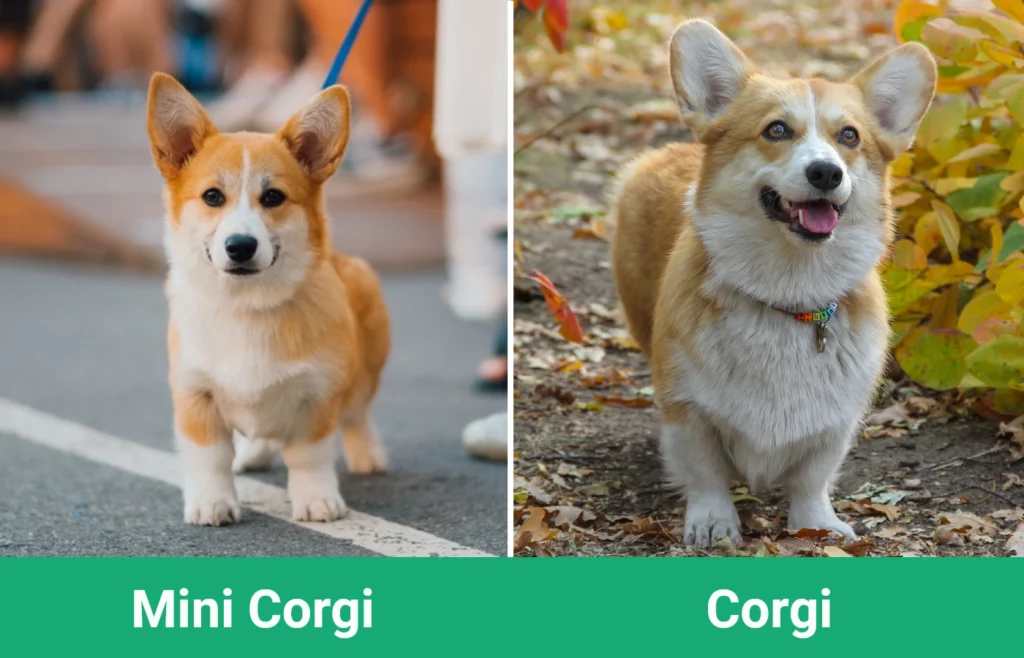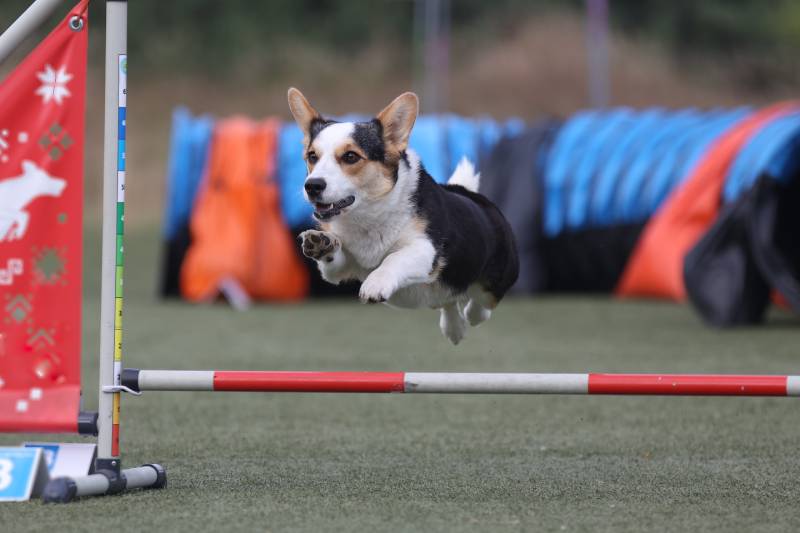[ad_1]

The Pembroke Welsh Corgi or the Cardigan Welsh Corgi is a fantastic breed that’s affectionate, intelligent, lovable, and makes an excellent watchdog. But what about the Miniature or Mini Corgi? Do these smaller versions of the Corgi have the same wonderful traits that make the larger versions so popular? Are they just as lovable and playful, for example, and do they live as long as their larger peers? To help you find out, we’ll compare the Mini Corgi and Corgi so that you can determine which dog is right for your home.

Visual Differences

At a Glance
Mini Corgi
Corgi

Mini Corgi Overview

Aside from the fact that they are smaller, Mini Corgis look exactly like full-size Corgis and have many of the same traits. Some of the differences between the two admittedly similar breeds are that Mini Corgis tend to live about 2 to 3 years less than Corgis, and they get tired faster than their larger counterparts.
One significant difference between the Mini Corgi and the Corgi is their lineage and breeding. You see, to get them to be smaller, Corgis are often bred with other breeds that are smaller than they are, like miniature Poodles and other small dogs. Often, the resulting Mini Corgi looks more like the other non-Corgi parent, which means you’ll have a Mini Corgi that looks more like a Poodle, Dachshund, Bichon Frise, or another small dog.
Personality / Character
Like their larger cousins, the Mini Corgi is friendly, affectionate, good with kids, and loves to play. They’re great watchdogs and can easily adapt to almost any living situation. Mini Corgis are also easy to train and have an incredible amount of natural energy, which means they need a lot of exercise. Also, Mini Corgis, like Corgis, tend to bark a lot.
Training
Just like Corgis, Mini Corgis are eager to please, which makes training them much easier. They do have a stubborn streak, however, so a good bit of patience and dedication is needed.
Health Issues
Mini Corgis don’t have many health problems, but they suffer from a few, like most dogs. Some of the most common health issues facing mini Corgis include hip dysplasia, epilepsy, progressive retinal atrophy, and degenerative myelopathy.
Grooming Needs
Mini Corgis, like Corgis, need regular brushing to ensure their coat stays clean, healthy, and full. They tend to shed heavily when spring transitions into summer and then again when fall turns into winter.
Suitable for:
Mini Corgis are suitable for almost anyone who wants a tiny, lovable, affectionate, and intelligent dog. They are better suited to smaller homes, apartments, and RVs because of their diminutive size, of course, but are still wonderful companions like their larger cousins. If you want a small dog with a big personality and a small appetite, the Mini Corgi is a great choice.
Pros & Cons
Below are the Pros and Cons of being the owner of a Mini Corgi to help you decide which is best for you.

Corgi Overview

There isn’t much you can say about the Corgi that hasn’t already been said about their smaller cousin, the Mini Corgi. Corgis are affectionate, intelligent, and energetic dogs that love their owners. They’re small dogs devoted to their human family, but they bark a lot, which can be a problem for some homes. Corgis are good with small children and other dogs, hardly drool, and are easy to train. However, they need a lot of mental and physical activity to stay healthy and happy.
Personality / Character
The Corgi is a barker from the get-go and will let you know when anyone, or anything, is coming close. They are playful pups with more energy than your average 5-year-old child and are very loyal to their humans.
Training
Corgis are one of the easier breeds to train because they are so eager to please their pet parents. They have a stubborn streak, but it’s relatively easy to overcome with patience and diligence.

Health Issues
Unlike the Mini Corgi, the Corgi has fewer health issues and tends to live a couple of years longer. They need to be regularly evaluated for hip dysplasia and should have their eyes checked annually to prevent eye degeneration issues.
Grooming Needs
While Corgis don’t need extensive grooming, they shed a considerable amount of fur twice a year like their smaller cousins. Brushing the dog two or three times a week will be necessary to keep their dander down and prevent allergy issues.
Suitable for:
Large families with children living in a large home are the perfect fit for a Corgi, although they will do just as well in an apartment with a single owner. After all, the average Corgi only weighs about 25 pounds. If you live in an RV or tiny home, a Corgi will make a perfect pet as they don’t need a lot of space, just a lot of love and affection.
Pros & Cons
Here are the advantages and disadvantages of owning a Corgi to help you decide which is best for you.

What Is the Difference in Cost Between a Corgi and a Mini Corgi?
One thing you need to remember when adopting your next dog is the price difference between a Corgi and a Mini Corgi. That’s because, on average, A Mini Corgi is 50% more expensive than a full-size Corgi. After all, they aren’t bred nearly as often. For example, while you can find a Corgi pup for between $500 and $1,000 in many places, most Mini Corgis start at $2,000.

Which Breed Is Right for You?
Mini Corgis don’t live as long as Corgis on average and tend to have more health issues. Besides that, there are very few other differences between these breeds, other than that Mini Corgis aren’t recognized as a breed by the American Kennel Club (AKC). At the end of the day, the Mini Corgi and Corgi are alike in almost every way, meaning they will make fantastic pets, comforting companions, and excellent watchdogs. The only choice you need to make is whether you want a small dog or a tiny dog.
Featured Image Credit: Top – Mini Corgi (ABCDstock, Shutterstock) | Bottom – Corgi (MolnarSzabolcsErdely, Pixabay)
